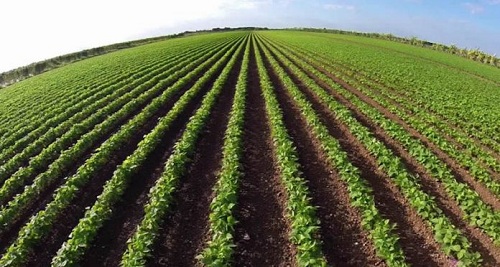This post has already been read 1267 times!
The federal government has expressed its desire to transform the agriculture sector of Benue State in order to boost food production and encourage exportation.
This was disclosed yesterday by the Minister of State for Industry, Trade and Investment, Mariam Katagum, in Makurdi at the official inauguration of the state office for the implementation of the Nigeria Agribusiness and Agro-Industry Development Initiative (NAADI).
Katagum said during the event that “this initiative is strategic within the context of the economic diversification drive of the present administration’s efforts anchored on the Economic Recovery and Growth plan (ERGP), and by extension, the Economic Sustainability Plan (ESP) being implemented by my ministry.
“The plan seeks to, among other things, develop the non-oil sector to boost production, encourage value addition and export for increased foreign exchange, wealth and job creation. The NAADI initiative represent a paradigm shift for agro-industrial revolution in Nigeria conceived within the context of the Nigeria industrial Revolution Plan (NIRP) of the ministry.
Represented by the ministry’s Director of Commodity and Export Department, Suleman Audu, the minister added that the overall objective of NAADI is to develop an industrialised and commercialised agriculture sector comprised of highly productive and profitable commodity value chains, with a view to accelerating the growth and diversification of the economy into differentiated high-value products.
She noted that the targeted groups included small producer and marketing organisations; small and medium agro-industry and agribusiness enterprises, among others.
According to her, “This initiative from conception in 2010 by the ministry was wholly driven by the leadership of the state Governor, Dr. Samuel Ortom, who was then the minister of state for Industry, Trade and Investment. The overall expected benefits, which include among others, stimulate the flow of equity investment to meet sectoral equity investments gap.
“Particularly in sectors critical to driving the country’s trade and exports competitiveness with propensity to improve the flow of foreign capital into the country; enhance the country’s agribusiness performance; reduced the country’s dependence on imports of agro-industry products; support human capacity building of MSMEs, most especially the youths and women operating in export supply chains, and increased value-added goods and services.”



